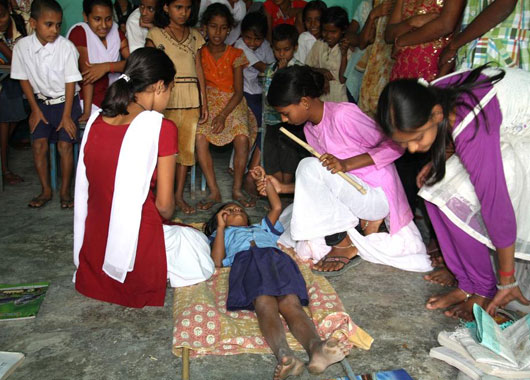
Child Protection in Emergencies
This training aims to build capacities of humanitarian workers to take appropriate action for child protection in an emergency, both in preparedness and for responses.
This course, at its inception, will establish a conceptual foundation for Child Protection by unpacking terminologies, models and the legal framework. These concepts are embedded in the Indian context through the use of relevant case studies and examples. Preliminary sessions have been designed to enable participants to identify vulnerable children, elucidate the different risks, and recognise the multiple stakeholders involved. Further, a combination of innovative and emerging knowledge sharing tools will equip participants with approaches for rapid assessment, coordination and advocacy in this area. Given the complexity of child protection in emergencies, this course seeks to expose participants to the different toolkits available; critically analyse responses in diverse scenarios; and anticipate roadblocks in each approach. More specifically, each stage of the project cycle is discussed, including assessment, design, implementation, monitoring, evaluation, and knowledge management. Further sessions provide detailed insight into sexual and gender-based violence, along with psycho-social responses.
With the recognition that knowledge is often created through debate and discussion, this course has been designed to facilitate interaction between practitioners who can share their experiences and collectively identify best practices. Further, a debate regarding the merits and demerits of need/resource-based planning versus rights-based planning, will help the participants recognize children as resources and innovate strategies for child participation.

